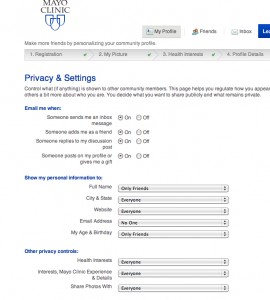The PCORI (Patient Centered Outcomes Research Institute) is looking for input on their definition of Patient Centered Outcomes Research.
If you are wondering what it might be, the current working definition is this (copied from their site):
Patient-Centered Outcomes Research (Working Definition)
Patient-Centered Outcomes Research (PCOR) helps people make informed health care decisions and allows their voice to be heard in assessing the value of health care options. This research answers patient-focused questions:
“Given my personal characteristics, conditions and preferences, what should I expect will happen to me?”
“What are my options and what are the benefits and harms of those options?”
“What can I do to improve the outcomes that are most important to me?”
“How can the health care system improve my chances of achieving the outcomes I prefer?”
To answer these questions, PCOR:
Assesses the benefits and harms of preventive, diagnostic, therapeutic, or health delivery system interventions to inform decision making, highlighting comparisons and outcomes that matter to people;
Is inclusive of an individual’s preferences, autonomy and needs, focusing on outcomes that people notice and care about such as survival, function, symptoms, and health-related quality of life;
Incorporates a wide variety of settings and diversity of participants to address individual differences and barriers to implementation and dissemination; and
Investigates (or may investigate) optimizing outcomes while addressing burden to individuals, resources, and other stakeholder perspectives.
As you can see from the definition, medical research done withe emphasis on patient’s quality of life and impact on their life and family is Patient Centered Outcomes Research. If you want to weigh in on the definition, head over to the “call for inputs” page on PCORI’s website.

 Follow
Follow